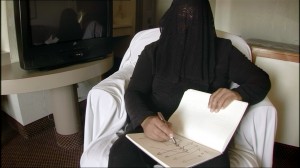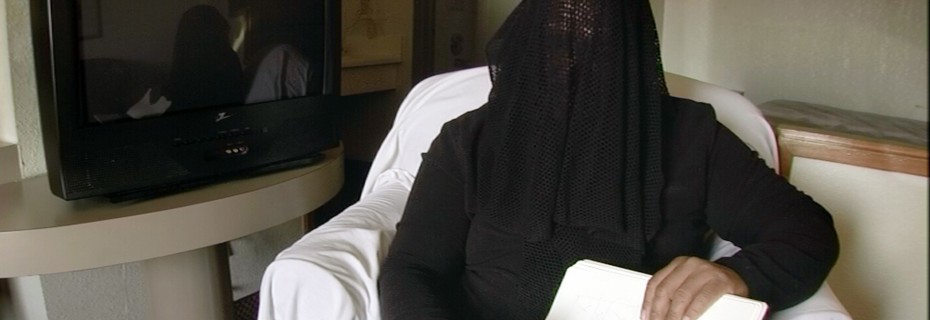Charles Bowden discusses ‘El Sicario, Room 164’ – PART ONE

Recently, Hollywood Soapbox talked with Charles Bowden, the award-winning journalist and author of several books about the Mexican drug business. The writer’s latest project is El Sicario, Room 164, a documentary that highlights the testimonial of a former contract killer for the Juárez, Mexico drug cartel. Bowden wrote the original story about the sicario (hit man) and co-produced the documentary with director Gianfranco Rosi.
Read our review of the film here.
In the first part of our interview, Bowden discusses ethics, eloquence and execution.
Is this a good time?
This is fine. As good as it gets. I’m off the highway, out of the rain and sitting in a chair.
Thank you for the time today.
Give me those questions, and I’ll tell you some lies.
I saw the documentary recently and I’m familiar with your work. How did you help this project go from the page to the screen?
Well, it’s an odd circumstance. Gianfranco Rosi is a friend of mine. We’re in New Orleans … we wanted to do something else. I showed him the manuscript; it hadn’t been published yet – the original piece in Harprer’s. He said, ‘I want this guy.’ I said, ‘I’ll see. Talking to him is a little different than putting him on the screen.’
So I went back, set it up and we did it. And that’s how that happened.
The reason I wrote it in the first place is I wanted a record of this kind of human being. They don’t usually talk. The reason he talked to me origianlly is because he had a contract on his head for $250,000. … The person protecting him, I knew and owed me a favor. So I asked for a favor. I said, ‘I want to put him on paper. I’ll protect his identity.’
We had so much footage that it wound up that Molly Molloy took the surplus footage, the stuff in the film, a bunch of followup interviews with the guy and published his autobiography. I guess you could call it a comedy of errors or circumstance.
Were you surprised by how eloquent the sicario was?
I’m basically dealing with criminals a lot of my life because of what I write about. The reason there’s a lot of prisons in this country is most people who commit crimes are not too bright. I was surprised. He was not only unusually well-spoken, he was not defensive. He was what you dream of.
I told him at the first meeting, I wouldn’t judge him, nor would I defend him. But I would put on paper things that (would help) people understand him, what he thought and what he did. He’s very articulate. He’s very perceptive.
When I asked him about his childhood, he knew instantly I was asking if he’d been abused and whether that explained his behavior.
He said, ‘No, no, you’re going in the wrong direction. I wasn’t abused. I have 12 brothers and sisters. None of them had done anything like this. My parents were decent people. I did this because I chose to.’
He had very good recall. I did a book on a cop once, Undercover Narc. And he had this ability not only to remember things, but to describe things. He was a person of action, like a Rambo figure in the police department. He could explain things in great detail. He was reflective. Well, the sicario was the same way, a very reflective person.
Was it always in the back of your mind that you needed to protect his identity?
I protected his identity because I gave my word. If you’re a reporter, all you have is your word. Editors are all morons. Publishers are fucking scum from hell. It’s you and the person. That’s it. That is your reputation. That’s why I protected him, because I said I would.
I’ve done this for years with a lot of other people. What I don’t do is help people commit crimes.
But like in this guy’s case, if he gets killed and I think he will. If you have a contract that high, somebody will eventually find you. The people looking for him are just as good as he is.
When he gets killed, I don’t want it to be because of anything I did, because I gave my word I wouldn’t give him up. That was not a hard decision. That was a decision I make with everybody I deal with. I keep my agreements.
You start burning people, word gets around fast. If you don’t burn people, more people call you.
If you’re dealing with police or people in government, everybody in those places is looking for somebody they can drop a dime on that won’t give them up, won’t reveal who they are.
That’s how I am. I used to tell people in journalism school the truth, before they stopped inviting me. There are no ethics in this business, except your own. A publisher hasn’t been born that will say, ‘I can’t print that story because you got it in an unethical way.’ Just ask Rupert Murdoch. He didn’t give a damn that they were hacking into privacy via telecommunications, and he had to obviously know.
So, if you’re going to be ethical, you have to be ethical. The institution, the business, isn’t ethical.
I certainly had publishers tell me they didn’t want to know how I found something out. Well, that’s not an unusual experience.
Once I rolled in with 200 pages of pscyhatriatic files. How the hell do you think he gets those? Well, all I know the publisher I was dealing with didn’t want to know.
Back to the Sicario, he’s very reflective, very intelligent, very self-critical, very analytical. Almost has no boastfulness. The only boastfulness he has, and there’s a glimpse of it in the film, is pride and craftsmanship. He will object to killings that are done poorly, used to many bullets or something. That’s the closest he gets to having an ego about himself. He never claimed to be a signficant. He never gave the thing, ‘I know this person, or I know that.’
To answer a question you may ask, I checked with people about his past. The people I checked with were criminals, meaning people in the drug organization in Juárez. That doesn’t mean he’s telling me the truth.
Well, I checked with a guy who helped train him when he started out. He is what he purports to be. He is a professional killer for the Juárez drug organization, the cartel.
By John Soltes / Publisher / John@HollywoodSoapbox.com
Click here for Part Two.


Great interview…. What do you think about the journalism business being unethical?
Similar to our “Great Experiment” of the 1920s, the prohibition of various other drugs has once again spawned rampant off-the-scale criminality & corruption, a bust economy, mass unemployment, a mind-boggling incarceration rate, a civil war in Mexico, an un-winnable war in Afghanistan and an even higher rate of drug-use (both legal & illegal) than in all other countries that have far more sensible policies.
http://scallywagandvagabond.com/2011/12/confessions-of-a-drug-thug-the-inside-story-on-killers-blood-and-your-next-fix/